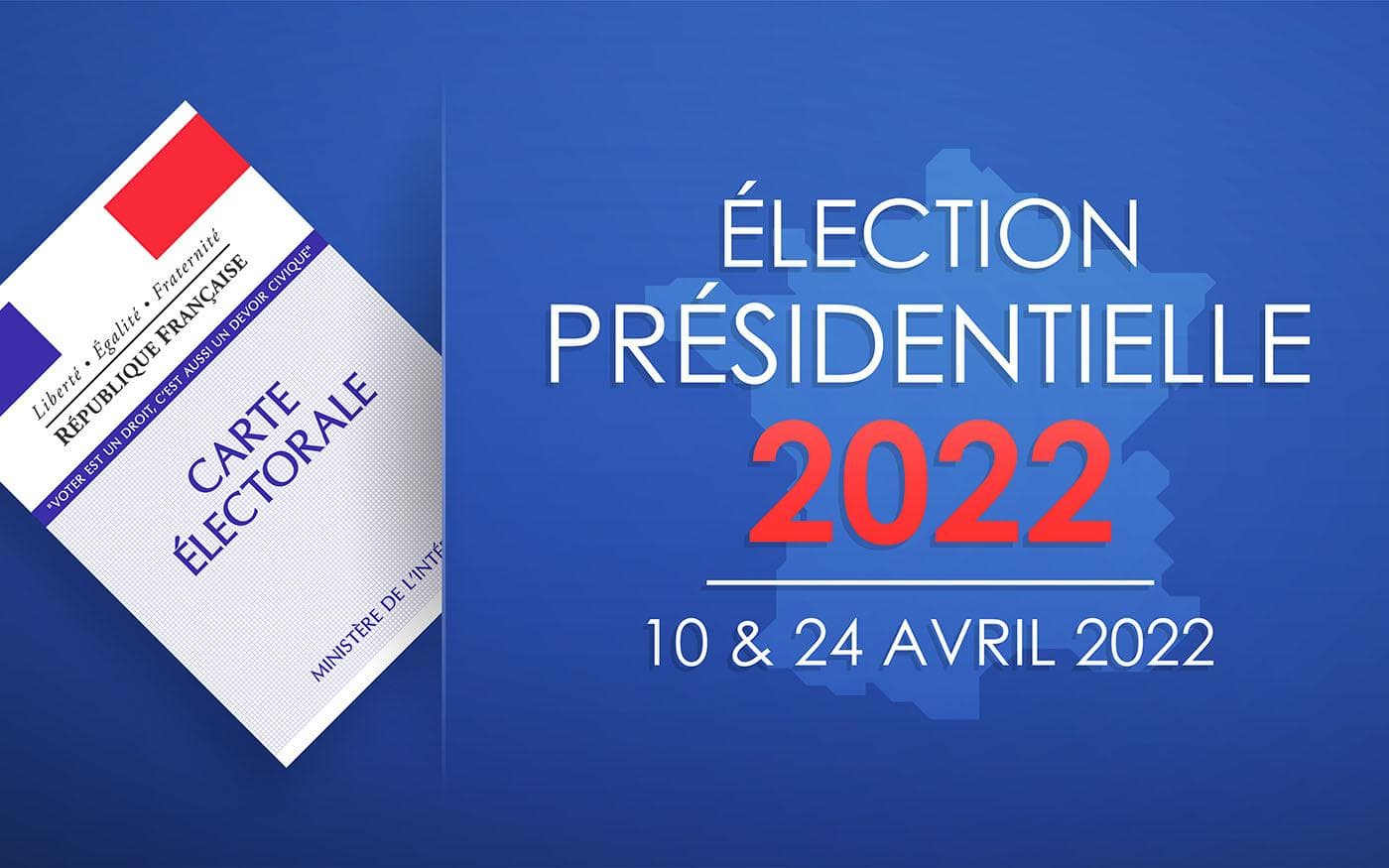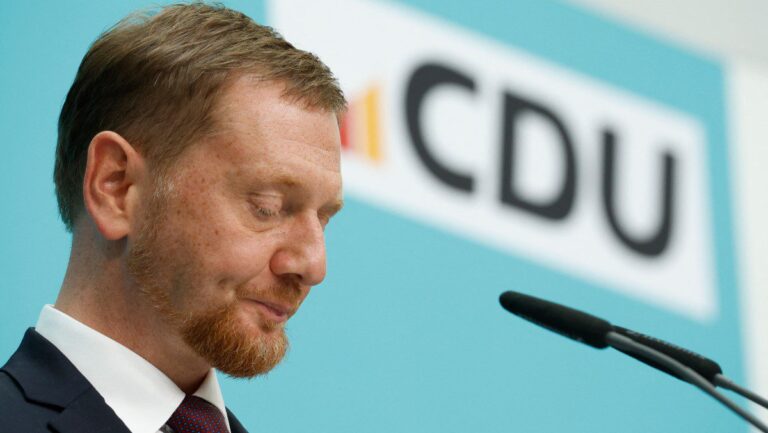While President Emmanuel Macron has yet to announce his candidacy for his own succession, the campaign for the presidential elections is intensifying in France.
On Saturday, February 5th, two meetings were held simultaneously for the two candidates who share the electorate of the national right. Éric Zemmour was expected in the north in Lille, while Marine Le Pen was gathering her militants in the east in Reims. The stakes for both candidates were high.
For Éric Zemmour, the objective of the meeting in Lille was to strengthen his economic and social platform, while his media presence is, for the moment, dominated by his arguments against immigration. He has thus far developed his proposals on work, merit, and the purchasing power of the French, with an added proposal of a bonus (without social charges) paid to employees by companies. He continues to develop his campaign themes, knowing that other meetings are still to come. Commentators point out that the transformation of the polemicist into a candidate is now complete—the candidate Zemmour is now capable of deploying an uncommon energy and unleashing the enthusiasm of his militants.
The strategic objective of Marine Le Pen in Reims was quite different. More limited in her budget, she chose not to increase the large-scale rallies. The one in Reims was intended to send essential signals about her credibility as president. She relied heavily on her international supporters, using video footage to advertise the support of Viktor Orbán from Hungary, Matteo Salvini of the League from Italy, André Ventura of the Chega party from Portugal, and Geert Wilders from the Netherlands.
The past week has seen a succession of violent clashes between the two rival candidates. An investigation by the newspaper Le Monde accused Zemmour’s party of engaging in a relentless campaign on social networks which pushed the limit of legality, using artificial user agents to flood the web (and especially Twitter) with posts and hashtags in favor of Reconquête and Zemmour—a strategy used a few weeks ago by Samuel Lafont, the person in charge of Zemmour’s digital communication, who appeared in the Le Monde investigation. Lafont chose to retaliate by launching the hashtag #JenesuispasunrobotetjevoteZemmour (“I’m not a robot and I support Zemmour”) to prove the existence of a genuine virality around his candidate, which is particularly popular among young people.
Marine Le Pen, for her part, has made deliberately polemical statements about her opponent. In her interviews with the press (in the magazine Causeur and in the columns of the daily Le Figaro), she pointed to what she calls “chapels” of people who, according to her, have left the Rassemblement National to join the ranks of Reconquête, a fortunate attrition, showing the unsavory side of Éric Zemmour’s political project: “traditionalist Catholics, pagans, and Nazis.”
The combination of these three “groups” in the same sentence aroused deserved anger among some Catholics, who sharply criticized the candidate of the Rassemblement National. The statement was undoubtedly clumsy; however, it only concerns a minority of the electorate that has already largely sided with Éric Zemmour. In order to soften the faux pas, Marine Le Pen multiplied allusions to the Catholic world in her speech in Reims—a city strong in Catholic history and culture, since it hosted the baptism of the Frankish King Clovis and the coronations of the kings of France. Referring to the famous poem of Louis Aragon composed during the German occupation, she made a discreet allusion to her faith by stating on the podium: “There are those who believe in heaven and those who do not. I believe in it.”
Marine Le Pen’s strategy is to prepare for the second round—even if it means losing some of her traditional voters along the way. To that purpose, Marine Le Pen’s lieutenants have been playing their cards for several days in their various media outlets, reinforcing the message that the real enemy remains the current president Emmanuel Macron and not Éric Zemmour. On several occasions, Rassemblement National executives have asked Reconquête activists on television programs whether they were ready to vote for Marine Le Pen if she were to face Emmanuel Macron in the second round—which remains the most likely scenario according to the vast majority of polls at the moment. Her strategy has produced the desired results. Such questions resulted in embarrassed silences, or negative answers, which they intend to exploit to show that Éric Zemmour’s objective is not to get rid of Emmanuel Macron, but simply to destabilize the right in order to prepare for “the aftermath.”
At the end of this weekend, the battle of numbers and images seems to be in favor of Zemmour. He gathered 8,000 activists in Lille, a stronghold dominated by the former socialist minister Martine Aubry. Youth is clearly one of the components of his success. Several commentators have noted a visible sociological divide between the two candidates which is taking hold. Marine Le Pen speaks to working-class France, while Zemmour’s electorate comes from the bourgeoisie: two pieces of the same puzzle which, for the moment, do not manage to fit together neither in the one nor in the other. The Reconquête movement continues to benefit from a dynamic of growing membership—the 100,000-member mark is about to be crossed. But the press notes that the wave of rallies has not made full impact in terms of voting intentions, even if it is progressing in the latest polls.
Violent clashes with antifa members broke out on the sidelines of his meeting, reinforcing his position as a candidate who wants to put an end to anarchy and the intellectual dictatorship of the left. But Marine Le Pen was not spared the violence of left-wing activists either: a bus of her activists leaving Marseille was stoned, and the driver injured, preventing them from reaching the planned rally in Reims in northern France.
The French conservative electorate remains fractured. The agenda to oust Macron is not enough, because it is also necessary to know the personalities of the two candidates and trust their ability to embody, and implement, what they do not write in full in their campaign documents. Firmness on immigration is obviously a criterion for decision, but family policy in all its dimensions should not be underestimated. The question that arises is also strategic: is the elimination of Emmanuel Macron possible and a priority, and if so, what path should be taken to achieve it?





